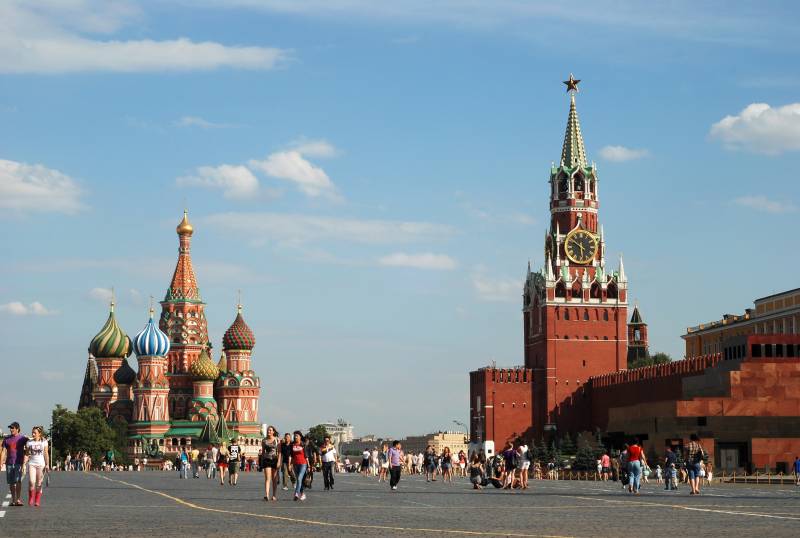The United States decided to debunk myths about the decline of Russia
In the United States, more and more attention is paid to Russia and its influence on international affairs. Many American policy point to China as a growing threat to US security. But, according to Foreign Affairs magazine, the Kremlin and its capabilities inside and outside the country should not be underestimated.
Some American politicians of the recent past were very skeptical about Russia, calling it a "gas station country" and a "regional power." But the reality is that it is too early for the West to discount Russia. This is evidenced by the facts.
So, despite corruption and bureaucracy, dependence on energy exports, a bloated public sector of industry and the impact of anti-Russian sanctions, economy Russia is stable and even shows growth. When adjusted for purchasing power parity, Russia's GDP of $ 4,1 trillion is second in Europe and sixth in the world. In general, the Russian Federation has adjusted to low oil prices and the economic downturn caused by the events of 2014 and is building up its internal reserves. Russia is also in the top ten countries in terms of spending on research and development.
The Russian Federation continues to develop despite the unfavorable demographic situation, which provides for a reduction in the population by 11 percent by 2050. Despite everything, Russia remains the most populous country in Eurasia. The Russian Federation was able to get out of the demographic hole of the 90s of the last century and is counting not so much on the number of the population as on the level of education, health care and labor productivity indicators of citizens living on its territory.
Military potential also plays an important role in the country's development. In this regard, according to American analysts, Moscow has the largest non-nuclear forces in Europe. Its army is highly mobile, technologically equipped and has a high level of combat readiness. The state spends on defense every year from $ 150 to $ 180 billion, improving old weapons systems and introducing new ones. Adds influence to Russia and the status of a leading space power, as well as a wide arsenal of information warfare capabilities.
At the same time, Foreign Affairs draws attention to the fallacy of some experts on Russia, pointing to a change in foreign policy paradigms with the departure of Vladimir Putin. The current Russian president may remain in power until 2036, and even with a nominal change in the country's leader, the Kremlin's course of opposing the United States and its influence in Europe and other regions of the world is unlikely to change.
Washington should stop seeing Russia as a hunted and cornered state
- believes the American edition, debunking the persistent Western myths about the decline of the Russian Federation.

Information